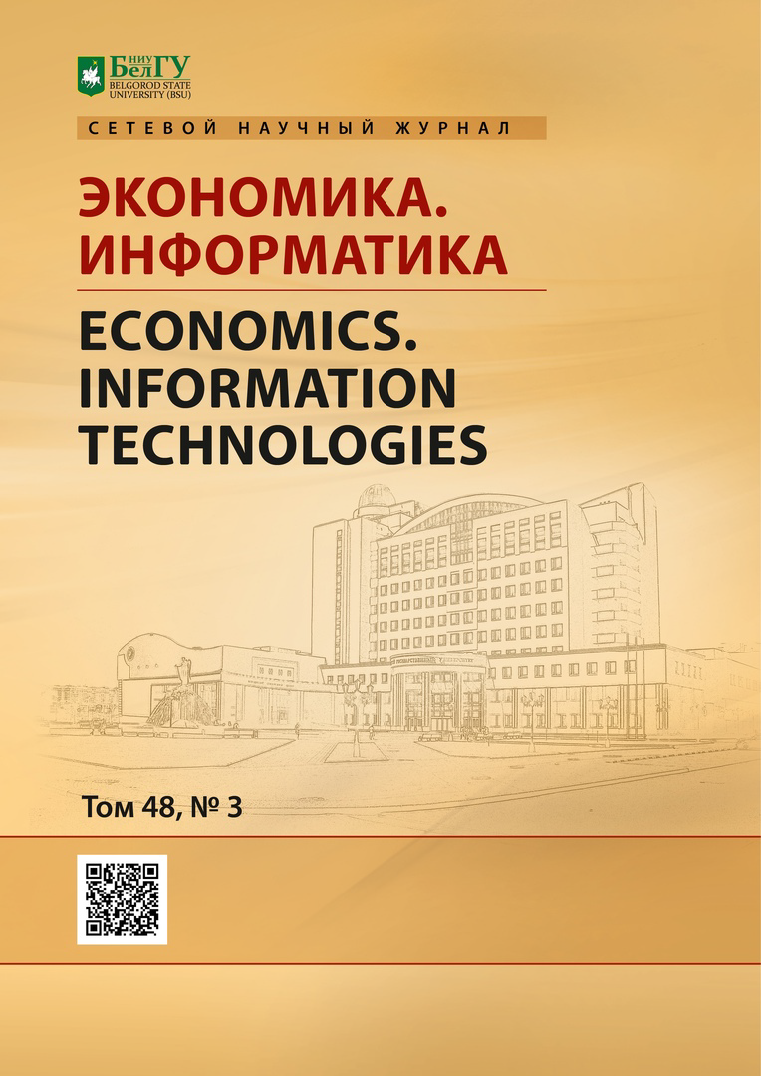Circular economy as a vector of innovation transformation of the business model of industrial enterprises
DOI:
https://doi.org/10.52575/2687-0932-2021-48-3-446-454Keywords:
circular economy, renewable resources, alternative sources of raw materials, innovation trendAbstract
The combination of economic growth with normal living conditions of a person demanded that Russian enterprises promptly restructure their business models based on the principles of a circular economy, which must fit into the tight timeframe of the Green Deal concluded by the EU countries for exporting companies. The aim of this project is to comply with the principle of carbon neutrality. The scale and complexity of the task is associated with the need for a systematic entry of our country's enterprises into the construction of a new technological order by abandoning the traditional use of a linear model of the economy and building a closed-cycle economy based on technologies that ensure the renewability of resources, optimizing their use, using alternative types of energy, realizing a decarbonization program that replaces natural raw materials with waste processing. Sharing is widely used in a circular economy, which implies, based on the Internet of Things, the collective tracking of the movement of all types of resources in order to optimally regroup them. The emergence of a new vector of economic development requires the development of recommendations for Russian enterprises on the transition to a new business model, an analysis of the possibilities of the Internet of Things and networking for the introduction of a closed cycle. Foreign realities demonstrate vigorous activity on the transition to a circular economy both at the governmental level and at the meso and micro scales. The aim of the work is to systematize government support measures in foreign countries and implement this strategy by large companies. The possibilities of their adaptation to Russian realities and the development of scientific and practical recommendations for accelerating the transition to a circular economy were studied. The study was also carried out based on an analysis of the best practices of Russian companies implementing business processes in a circular economy. The study made it possible to identify the main characteristics of new business models of circular enterprises. Several negative consequences from the transition to a circular economy are considered. The research contributes to the development of the currently basic direction of the transition to Industry 4.0 through the priority of implementing such a vector of innovative development as carbon neutrality. It is concluded that the transition to a circular economy is an important component of the change in the technological structure.
Downloads
References
Национальный проект «Экология»: приоритеты государства, возможности для бизнеса. Восточный экономический форум – 2018. URL: https://forumvostok.ru/news/natsionalnyj-proekt-%C2%ABekologija%C2%BB-prioritety-gosudarstva-vozmozhnosti-dlja-biznesa/ (дата обращения: 07.07.2021).
Пятая ежегодная конференция «День цифровых инноваций в упаковке и этикетке», январь 2020. URL: https://www.publish.ru/dpl2020 (дата обращения: 07.07.2021).
Степненко П. Сделка века. The Chemical Journal. декабрь 2020. URL: https://tcj.ru/archive/sdelka/ (дата обращения: 07.07.2021).
Circular economy: what it means, how to get there. World economic forum. URL: https://www.weforum.org/agenda/2016/01/the-importance-of-a-circular-economy/ (дата обращения: 07.07.2021).
ООН, The Ellen MacArthur Foundation, BP, Frost&Sullivan, NASA, World Bank. URL: https://ellenmacarthurfoundation.org/ (дата обращения: 07.07.2021).
The Ellen MacArthur Foundation. URL: https://ellenmacarthurfoundation.org/ (дата обращения: 07.07.2021).
Бурмистров В.А. 2018. Россия и циркулярная экономика. Стандарты и качество, 11: 12–15.
Валько Д.В. 2019. Циркулярная экономика: понятийный аппарат и диффузия концепции в отечественных исследованиях. Научный журнал НИУ ИТМО. Серия: Экономика и экологический менеджмент, 2: 42–49. DOI 10.17586/2310-1172-2019-12-2-42-49.
Голиков В.Д. 2019. Циркулярная экономика: экологически ориентированные производство и потребление. Вопросы гуманитарных наук, 4(103): 8–11.
Кудрявцева О.В., Митенкова Е.Н., Солодова М.А. 2019. Циркулярная экономика как инструмент устойчивого развития России. Экономическое возрождение России, 3(61): 115–126.
Куркова А.С. 2018. Циркулярная экономика как катализатор развития рынка строительства в современном обществе. Международный журнал гуманитарных и естественных наук, 12-2: 52-55. DOI 10.24411/2500-1000-2018-10374.
Сайла А. 2020. Устойчивое развитие упаковочной индустрии: регулирование в ЕС и циркулярная экономика. Переработка молока, 1(243): 42–43.
Сысоева Е.А. 2019. Циркулярная экономика в контексте устойчивого развития. Проблемы современной экономики, 2(70): 199–204.
Шадрина Е.В., Алейникова И.С. 2019. Циркулярная экономика и циркулярные закупки. Госзаказ: управление, размещение, обеспечение, 56: 82–87.
Davies A.R., Mullin S.J. 2011. Greening the economy: interrogating sustainability innovations beyond the mainstream. Journal of Economic Geography, 11: 793–816.
Abstract views: 546
Share
Published
How to Cite
Issue
Section
Copyright (c) 2021 ECONOMICS. INFORMATION TECHNOLOGIES

This work is licensed under a Creative Commons Attribution 4.0 International License.


